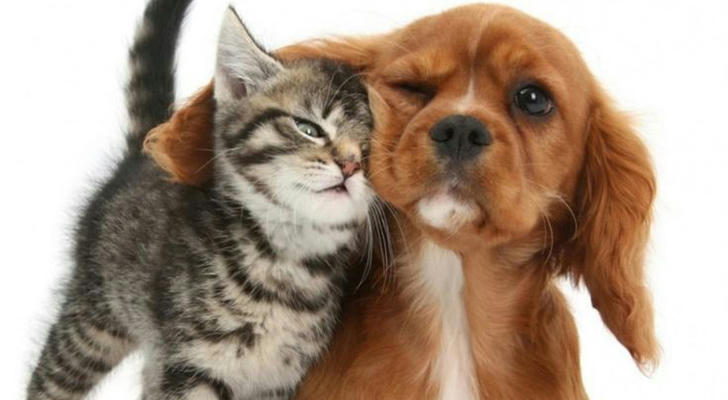Pet Insurance Primer: Why Every Pet Owner Should Consider It

As living standards rise, pets are becoming more important members of families. They are not just companions but integral parts of households, carrying the emotional weight of their owners. However, with the yearly increase in pet medical costs, pet owners often face significant financial pressure when their pets fall ill or get injured. In this context, pet insurance is gaining attention as a protective measure. It not only provides financial support for managing pets' health but also alleviates the psychological burden on pet owners during critical times. Therefore, pet insurance should be a consideration for every pet owner.

Key Value of Pet Insurance: A Multi-Angle Analysis
1. Health Management: Dual Protection of Prevention and Treatment
Pet insurance is not limited to covering expenses for illness or accidents; it also includes preventive healthcare services. Many insurance plans cover regular health check-ups, vaccinations, and other preventive medical items. These services help detect potential health issues in pets early, reducing the likelihood of severe diseases. With pet insurance, owners can more comfortably manage regular check-ups and preventive treatments, significantly enhancing their pets' overall health.
2. Economic Protection: A Safety Net for Unexpected Events
Pet medical expenses are often costly, especially in cases of sudden illness or accidents. Pet insurance provides economic protection, allowing pet owners to offer the best treatment options without worrying about high costs. This financial support helps pet owners avoid difficult decisions caused by unaffordable medical expenses, ensuring that pets receive timely and effective treatment when needed.
3. Convenient Claims: A Time-Saving and Efficient User Experience
The claims process for modern pet insurance is usually simple and quick. Pet owners only need to submit the necessary information via an online platform, and the insurance company will quickly respond and complete the claims process. This efficient service greatly reduces the administrative burden on pet owners during their pets' treatment process, allowing them to focus more on caring for their pets, thus improving the overall user experience.
4. Emotional Support: Psychological Comfort in Difficult Times
When a pet falls ill or gets injured, pet owners often feel anxious and helpless. Pet insurance not only provides financial support but also offers psychological comfort to pet owners. The existence of insurance allows pet owners to focus more on their pets' treatment and recovery without being overly concerned about financial issues, thereby offering their pets more love and companionship during tough times.

Case Study: Xiao Li and His Cat “Meow Meow”
Background: Xiao Li is a young professional who is often busy with work. His pet cat, “Meow Meow,” is his greatest comfort and companion when he returns home.
Incident: One day, Xiao Li noticed that “Meow Meow” had lost its appetite and was listless. After a veterinary check-up, it was discovered that “Meow Meow” had a gastrointestinal illness that required immediate treatment. Faced with high medical costs, Xiao Li felt a significant amount of pressure. Fortunately, he had previously purchased pet insurance for “Meow Meow,” and the insurance company quickly processed his claim, helping him cover the treatment expenses.
Emotional Impact: During “Meow Meow’s” illness, Xiao Li realized the importance of pet insurance. The insurance not only reduced his financial burden but also allowed him to focus on caring for “Meow Meow’s” recovery. He felt that pet insurance provided him with real, tangible help, solidifying his support for this choice in the future.

Choosing the Right Pet Insurance: Key Considerations
1. Understand the Coverage: Read the Policy Details
When selecting pet insurance, owners should carefully read the policy details to understand the coverage range, reimbursement rates, and deductibles. It’s particularly important to note whether the insurance covers common pet illnesses, accidents, and other specific information like coverage limits.
2. Tailored to Needs: Custom Insurance Plans
Different pets have varying ages, health conditions, and lifestyle habits. Therefore, when choosing an insurance plan, owners should consider their pet's specific circumstances. For instance, older or less healthy pets might require more comprehensive coverage, while younger, more active pets might benefit more from accident insurance.
3. Value-Added Services: Enhance Overall Health Management
Some insurance companies offer additional value-added services, such as online consultations, health advice, and preventive care services. Choosing these extra services can help owners better manage their pets' daily health, reducing the risk of illness and further easing future financial burdens.
Conclusion
In summary, pet insurance is not only a safeguard for pet health but also a source of financial and emotional support for pet owners. By purchasing pet insurance, pet owners can face their pets' illnesses or injuries with more confidence, without being overwhelmed by financial concerns. As pets continue to play an increasingly important role in families, the necessity of pet insurance is becoming more apparent. For every pet owner, pet insurance should be a vital consideration, ensuring a happy and healthy life for their beloved pets.
